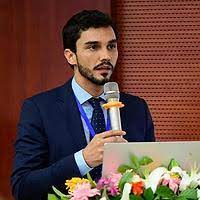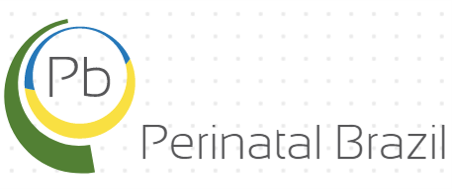Dr Matias Costa Vieira
 Researcher at King's College London
Researcher at King's College London
Graduated in Medicine from the Federal University of Health Sciences of Porto Alegre (2007), residency in Obstetrics and Gynecology from the Pontifical Catholic University of Rio Grande do Sul (2011), specialization in Ultrasonography in Obstetrics and Gynecology from the Pontifical Catholic University of Rio Grande do Sul (2012) ), Masters in Medicine and Health Sciences from the Pontifical Catholic University of Rio Grande do Sul (2013) and PhD in Women's Health from Kings College London (2019).
Dr Renato T. Souza
Reseacher at State University of Campinas
Graduated in Medicine from the Federal University of Paraná (2009), Master's in Gynecology from the State University of Campinas (2015) and Ph.D. in Gynecology from the State University of Campinas (2019). He is currently a professor in the graduate program at the State University of Campinas. He has experience in Medicine, with an emphasis on Medicine, working mainly on the following topics: Maternal and perinatal health, Maternal morbidity and mortality, Prematurity - Spontaneous and Therapeutics, Epidemiology, as well as projects with a multidimensional view of maternal and perinatal health that encompasses explore functionality, resilience, stress, violence and vulnerability.
ORCID: https://orcid.org/0000-0002-9075-9269
Prof. Dr. José Guilherme Cecatti
 Full Professor of Obstetrics and gynecology at University of Campinas and the Coordinator of the Brazilian Network for Studies of Reproductive and Perinatal Health
Full Professor of Obstetrics and gynecology at University of Campinas and the Coordinator of the Brazilian Network for Studies of Reproductive and Perinatal Health
Jose Guilherme Cecatti completed the PhD in Obstetrics and Gynaecology at Unicamp in 1992, the masters of epidemiology at London School of Hygiene and Tropical Medicine in 1993. Former chair of the Campinas Reproductive Health Study Center (Cemicamp). He has published 273 articles in national and international specialized journals, has 12 other accepted or submitted for publication, and 111 works in annuals of events. Has 25 technical production items. Participated in 25 events abroad and 85 in Brazil. Supervised 28 master's dissertations, 23 PhD thesis, and guided 6 scientific initiation work in the Medicine and Public Health areas. Received 7 awards and/or tributes. He has dedicated his career in the area of medicine, maternal health and epidemiology. In his professional activities, he interacted with 192 collaborators in diverse scientific areas. Currently, his main activity in post-graduation is based on the application of epidemiology to clinical research in I maternal and reproductive health, as well as the development and implementation of epidemiological research projects. Recently, he has been involved with the development of the concept and criteria of maternal near miss together with the Maternal Morbidity Working Group of the World Health Organization.
ORCID: https://orcid.org/0000-0003-1285-8445
Prof. Dr Marcos Augustos Bastos Dias
Medical doctor at the Fernandes Figueira Institute / FIOCRUZ
Marcos Augusto Dias has a degree in Medicine from Rio de Janeiro State University (1982), a master's degree in Women's and Children's health from the Fernandes Figueira Institute / FIOCRUZ (2001) and a PhD in science in Women's and Children's health from Fernandes Figueira Institute / FIOCRUZ (2006). He is a medical doctor at the Fernandes Figueira Institute / FIOCRUZ, developing research in the maternal and child health area, focusing on humanization of care, cesarean section and maternal mortality.
Prof. Dr. Dharmintra Pasupahty
 Professor of Maternal & Fetal Medicine at University of Sydney
Professor of Maternal & Fetal Medicine at University of Sydney
Dharmintra Pasupathy is the Head of Specialty of Obstetrics, Gynaecology and Neonatology at Wesmead Clinical School and Joint Head in Sydney Medical School. Professor Pasupathy's research interest is in the improved characterisation and stratification of risk in pregnancy in relation to maternal obesity, gestational diabetes and anomalies of fetal growth. His work is underpined by methodology focused on the use of routinely collected clinical data to inform both obstervational and interventional based studies and research to inform quality improvement.
ORCID: https://orcid.org/0000-0002-6722-1006



